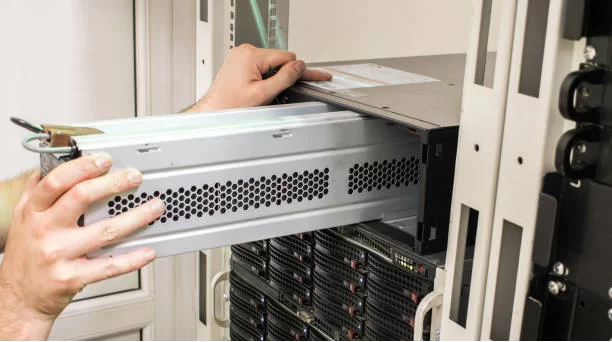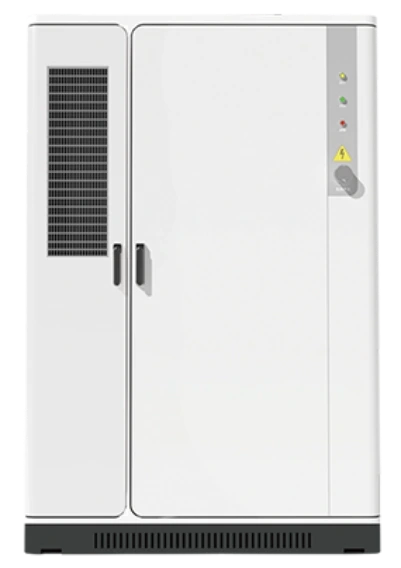Uninterruptible Power Supply (UPS) Cabinets: A Crucial Component in Modern Power Systems
In today’s world, where the demand for uninterrupted power supply is ever-increasing, Uninterruptible Power Supply (UPS) systems are indispensable for businesses, data centers, hospitals, and other critical sectors. UPS cabinets, which house these crucial systems, ensure a continuous power supply even during power outages or fluctuations.
A UPS cabinet is essentially a cabinet that contains a UPS system and its related components. The primary function of a UPS system is to provide backup power during electrical outages, ensuring uninterrupted operation of critical systems. uninterruptible power supply cabinets’s not only protect UPS equipment from environmental factors but also ensure the functionality and safety of the system.

Key Components of a uninterruptible power supply cabinets
- UPS Unit:
The core component that converts stored energy into usable power during a power outage.
Typically includes batteries, inverters, and rectifiers.
Batteries:
Store backup power for use during electrical outages.
Common types include lead-acid batteries and lithium-ion batteries.Inverters and Rectifiers:
Inverters convert the DC power from the batteries into AC power required by the equipment.
Rectifiers convert incoming AC power into DC power to charge the batteries.
Control Panel:
Allows users to monitor and manage the UPS system.
Provides critical information such as battery status, load levels, and fault indicators.
Cooling System:
Prevents UPS components from overheating.
Includes fans, ventilation, and sometimes air conditioning units.
Safety Features:
Includes circuit breakers, surge protectors, and fire suppression systems.
Ensures the safety of the UPS system and the loads it supports.
Applications of UPS Cabinets
- Data Centers:
Provide uninterrupted power to servers, storage devices, and network equipment.
Critical for maintaining data integrity and availability.
Medical Facilities:
Ensure continuous operation of critical medical equipment during power outages.
Vital for patient safety and the functioning of life support systems.
Industrial Environments:
Protect sensitive manufacturing and control systems from power disturbances.
Essential for maintaining production efficiency and safety.
Telecommunications:
Ensure continuous operation of communication networks.
Crucial for emergency services and daily communications.
Commercial Buildings:
Provide backup power for elevators, lighting, and security systems.
Enhance the safety and functionality of the building.
Advantages of UPS Cabinets
- Power Continuity:
Provide backup power to prevent interruptions in critical operations.
Minimize downtime and associated costs.
Equipment Protection:
Protect sensitive electronic equipment from power surges, spikes, and fluctuations.
Extend the lifespan of equipment by providing stable power.
Safety and Reliability:
Equipped with safety features to prevent hazards such as fires.
Reliable power supply ensures the safety of personnel and operations.
Scalability and Flexibility:
Can be customized to meet the specific power needs of different applications.
Modular designs facilitate expansion and upgrades.
Future Trends in UPS Cabinets
- Advancements in Battery Technology:
Development of more efficient and durable batteries, such as lithium-ion and solid-state batteries.
Improved energy density and reduced maintenance requirements.
Integration with Renewable Energy:
Combining UPS systems with renewable energy sources like solar and wind power.
Enhance sustainability and reduce dependence on grid power.
Intelligent UPS Systems:
Incorporation of IoT and AI for real-time monitoring and predictive maintenance.
Enhance reliability and efficiency in power management.
Enhanced Cooling Solutions:
Development of more efficient cooling technologies to manage heat generated by UPS systems.
Liquid cooling and advanced ventilation systems.
Compact and Modular Designs:
Smaller, more efficient UPS systems that occupy less space.
Modular designs for easy expansion and customization.
Guide to Selecting a uninterruptible power supply cabinets
Choosing the right uninterruptible power supply cabinets is crucial for ensuring the reliability and efficiency of your power system. Here are some key factors to consider when selecting a uninterruptible power supply cabinet:
- Capacity and Scalability:
Ensure the uninterruptible power supply cabinets has enough capacity to meet current and future power demands.
Consider modular designs for easy expansion and upgrades.
Environmental Adaptability:
Choose a uninterruptible power supply cabinet suitable for the installation environment, such as dust-proof, waterproof, and shockproof features.
Select appropriate cooling systems based on the temperature and humidity conditions of the installation site.
Safety:
Ensure the UPS cabinet is equipped with necessary safety features such as circuit breakers, surge protectors, and fire suppression systems.
Check the cabinet’s protection rating and certification.
Monitoring and Management Features:
Choose a UPS cabinet with advanced monitoring and management systems for real-time monitoring of battery status, load levels, and fault conditions.
Consider whether remote monitoring and management features are needed.
Maintenance Convenience:
Select a UPS cabinet that is easy to maintain and service, reducing maintenance time and costs.
Consider convenient battery replacement and component repair designs.
Case Studies of UPS Cabinets in Different Applications
- Data Centers:
A large data center employs modular UPS , ensuring continuous power supply to servers and storage devices through real-time monitoring systems.
During power outages, the UPS system seamlessly switches to backup batteries, ensuring data integrity and business continuity.
Medical Facilities:
A comprehensive hospital equips UPS to provide uninterrupted power to operating rooms, intensive care units, and life support equipment.
The UPS system automatically detects power fluctuations and swiftly switches to backup power, ensuring the stable operation of medical equipment and patient safety.
Industrial Environments:
A manufacturing enterprise installs UPS to protect sensitive production equipment and control systems from power disturbances.
The UPS system provides backup power during outages, maintaining the continuous operation of production lines and preventing downtime losses.
Telecommunications:
A telecommunications company uses UPS to provide backup power to base stations and switches, ensuring the stable operation of communication networks.
The UPS system ensures continuous power supply during adverse weather conditions and power outages, maintaining the normal operation of emergency services.
Commercial Buildings:
A large commercial complex employs UPS to provide backup power for elevators, security systems, and emergency lighting.
During power outages, the UPS system quickly activates, ensuring the safety and functionality of the building and enhancing user experience.
Conclusion
uninterruptible power supply cabinets play a crucial role in ensuring uninterrupted power supply across various sectors. By housing and protecting UPS systems and their components, these cabinets ensure critical operations continue smoothly during power outages. As technology advances, UPS are becoming more efficient, reliable, and integrated with renewable energy, paving the way for a more sustainable and resilient power infrastructure.
Investing in high-quality UPS is essential for any organization that relies on continuous power supply. Selecting the right UPS ,considering factors such as capacity, environmental adaptability, safety, monitoring and management features, and maintenance convenience, ensures long-term system stability. With future developments and trends, UPS will continue to evolve, providing more benefits and ensuring the stability and security of power systems worldwide.
The application prospects for UPS systems and uninterruptible power supply cabinets are vast. With further technological innovation, UPS will play an increasingly important role in various fields, providing reliable and efficient power guarantees for human life and work.

